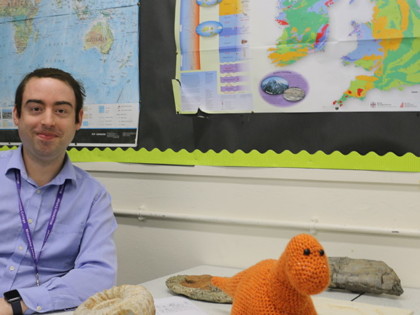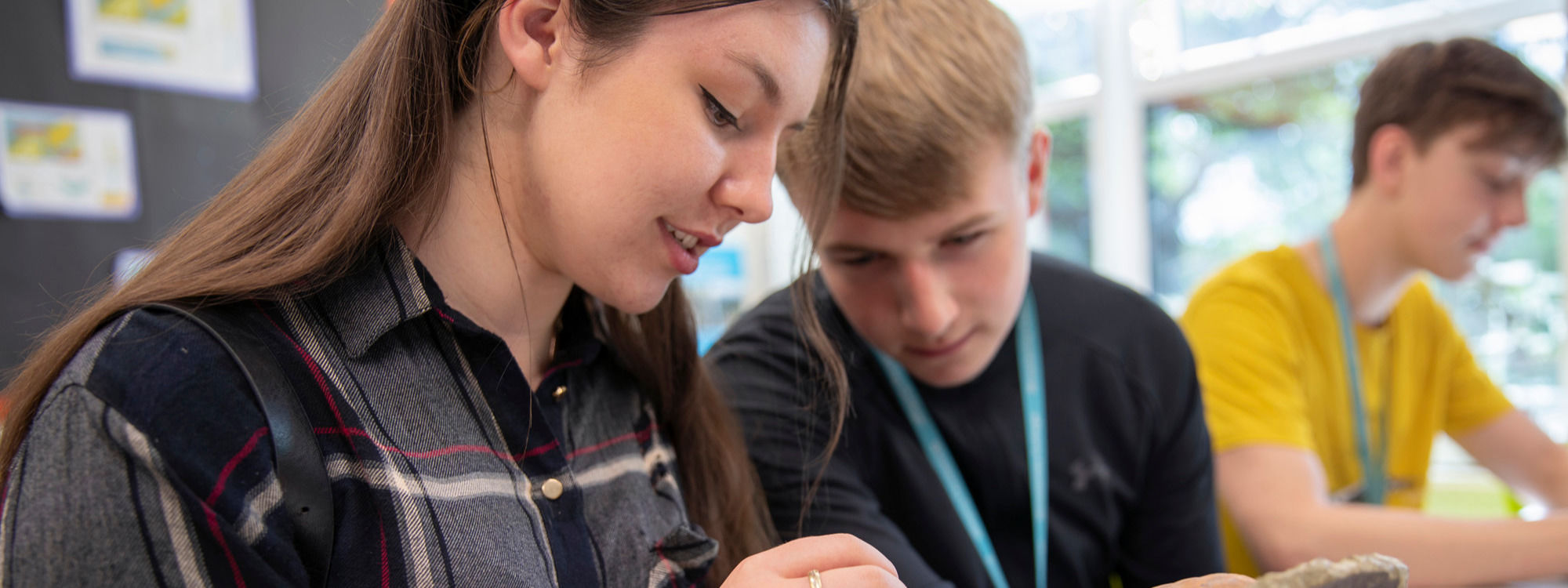- Home
- Curriculum
- Course Search
- Geology
Geology
Life, the universe, and everything inbetween!
Why study Geology?
On human time-scales geological processes may seem slow but they shape our world. Throughout the course we will virtually speed up these processes to seethe origins of the universe and planets, the opening and closing of entire oceans, climate change, the evolution of life, the rise (and future) of our entire civilisation and the end of the universe itself. Reasons to study the subject include:
- Foster a world view by investigating the very processes that have created the world seen today.
- The impacts of climate change and the prospect of planetary exploration will increase the need for more geologists in the future.
- Develop excellent transferable problem-solving skills.
- Explore the links between geology and other STEM subjects to appreciate a multidisciplinary approach to solving issues relevant to hazards, energy and climate.
- Employability – “Hands on” practical and field skills recognised by employers and university. Separate qualification gained for this.

Andy - Geology Teacher
What will I study?
Year 1
- Space and the solar system
- Rocks and minerals
- Evolution of life (including dinosaurs)
- Volcanoes
- Plate tectonics
- Practical and field work
- Climate Change
Year 2
- The evolution of life
- Hazards
- Natural Resources
- The evolution of the lithosphere
- Practical and field work
Fieldwork
Field trips to Clitheroe, Thurstaston and Alderley Edge
Entry requirements
Grade 5 or above in GCSE Maths
There are mandatory field trips
Which exam board & how will I be assessed?
Eduqas.
100% examination with three exams at the end of year 2 (mix of data response, problem solving and a few extended answer questions).
Separate qualification in practical work (practical endorsement).
Where could it take me?
Many of the students go on to study geology, earth science, environmental science and engineering. Many students pursue science related degrees such as engineering and resource exploration including fossil fuels, green energy and mineral extraction. Other pathways include archaeology, oceanography and marine biology degrees. Universities include Cambridge, Oxford, Birmingham, Manchester, Leeds, and York. Several students have gone on to study an apprenticeship. Students can progress to careers such as; climatologist, hazard management, palaeontologist, volcanologist and sustainability consultant.
Subject combinations
Geology goes with many subjects but in particular the subject goes well with: Geography, Biology, Engineering, Physics, Chemistry, Maths and Statistics.
What support is available?
A range of interventions are implemented to help every student get the best result possible. These include regular fun quizzes, exam booster sessions and group/individual tutorials. Maths and problem-solving skills are delivered in dedicated sessions to slowly build confidence and proficiency in these areas. All resources are bespoke and are regularly revised to better meet the needs of the cohort.
What extracurricular activity is available?
Earth Sciences Club offers a range of talks on geological and geographic topics. Conferences and visits like the “Tectonic Hazards Conference” in Manchester and museums such as the National History Museum, London.
The Humanities Department run the Gaia society which is open to all Humanities students. Geologists contribute to the running of the magazine, debates and attend trips like the UCLAN Anthropology trip. Geologists have also taken part in the British Geological Survey national student quiz in London, as well as having guest speakers, competitions and contributing to events like Culture Day.
Did you know?
- 100% pass rate over the last 5 years.
- More than half of students go on to study earth and environment science courses or related discipline.














